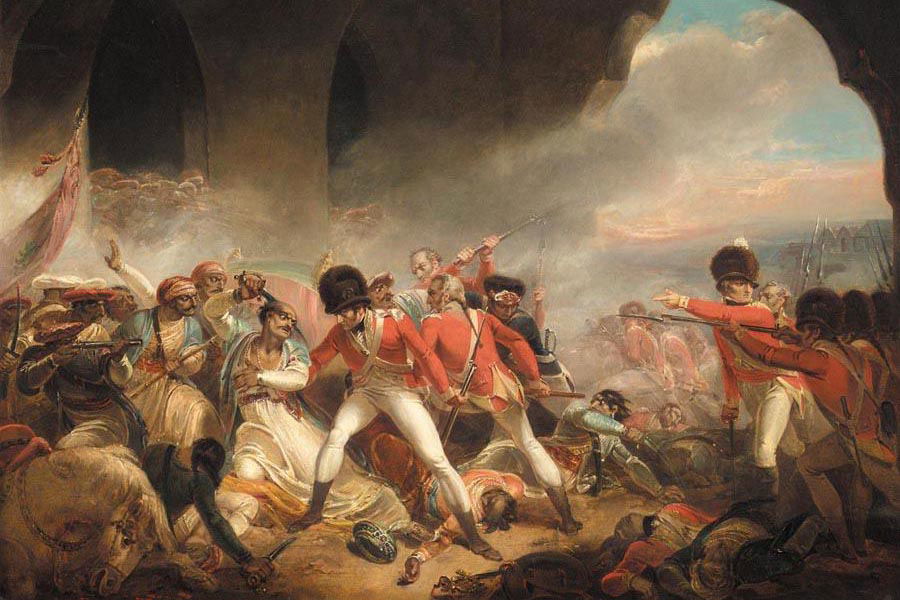Travels Through Time: Bloodshed and Confusion in India - 2 minutes read

By the second half of the 18th century, millions in India had been brought under British rule, due to the presence of the East India Company.
The Company was first granted its charter in 1600, and initially sought access to Asian markets and commodities. By the mid-18th century, it was facing fierce competition from Dutch merchants, and so moved its focus to South Asia. Commercial presences became established in Madras, Bombay and Calcutta, and the Company began to create an empire for itself.
In this episode of Travels Through Time, historian William Dalrymple discusses this moment, looking specifically at the year 1764 which culminated in the Battle of Buxar.
Dalrymple begins by discussing February 1764 as Mir Qasim, Shah Alam and Shuja ud-Daula united forces against the East India Company in Avadh. Their combined army totalled 150,000 men, who reached the fortified walls of Patna, an ancient city on the banks of the Ganges, on 3 May 1764.
Finally, on 22 October 1764, the decisive British victory at the Battle of Buxar marked the end of any autonomy for future nawabs.
![]()
![]()
![]()
![]()
Travels Through Time. Tailored tours of the past.
Travels Through Time is presented by bestselling historian Peter Moore. In each episode we are joined by an expert guest, to journey to the time and place of their choice. Enjoy a ringside view of history as never before, with the action described by those who understand it best. Browse other episodes in this series here.
How to listen
You can listen to Travels Through Time here on our site in the player above, or on iTunes, Spotify, Podbean and Acast. There is also an RSS feed.
Further reading: related articles from the History Today archive
Warren Hastings, Governor-General of India
Zareer Masani
The foundations of modern India were laid by the British governor-general, Warren Hastings. But he paid a heavy personal price.
India versus the East India Company
Jon Wilson
Violence and expansion were integral to the armed bureaucracy that played a crucial role in the early days of Empire.
The Last Emperor
Miles Taylor
The voice of the British monarch carried considerable weight in imperial India. Its slow silencing mirrored the retreat of Britain from the subcontinent.